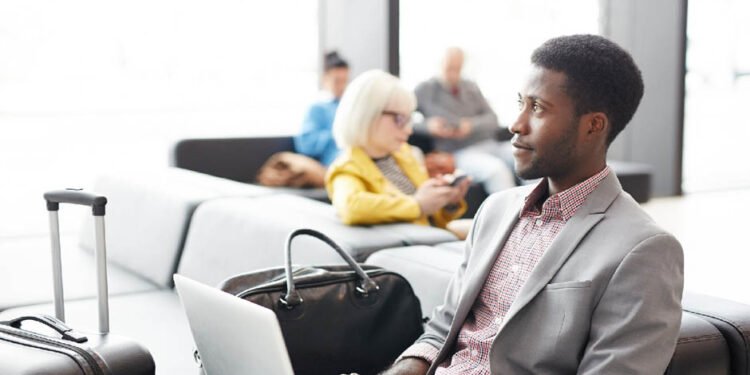For business travelers, staying safe while on the go is paramount. The rise of cyber threats and security breaches has made it crucial for every business traveler to be well-equipped with the right tools and knowledge to keep themselves secure.
Whether traveling to another state or crossing borders, there are specific security considerations that every business traveler should consider. In this article, experts from Dennis Bonnen, Second Floor Strategies, will share several ways to stay safe and secure while traveling for work.
Learn about the Security Situation of Your Destination
Before heading to your destination, it’s always best to research and learn about the current security state. Check for any known safety risks and emergency procedures. Remember also to look up and keep a tab on reputable news sources, government travel advisories, and US State Department’s Smart Traveler Enrollment Program (STEP).
The STEP program allows you to register your travel plan and contact information at the nearest US Embassy or Consulate abroad. This can be helpful in case of an emergency.
Protect Your Electronic Devices
Nowadays, electronic devices have become essential for every business travel. Protecting your devices from theft or hacking is crucial by using Wi-Fi with high encryption, making regular backups, installing reliable security software, and using virtual private networks (VPN).
Additionally, constantly monitor your device usage and avoid public Wi-Fi hotspots when accessing sensitive information or your company’s network. A cloud-based storage system also adds additional security for backing up your data.
Be Alert and Skeptical
While traveling, keeping a vigilant eye on your surroundings is essential. Always be aware of your surroundings to avoid pickpockets and scams. Beware of suspicious people or situations, and keep your belongings at close range to prevent theft.
Likewise, be wary of email scams and phishing attacks that can trick you into revealing confidential information. As a rule of thumb, anything that appears too good to be true is.
Keep Your Communication Lines Open
Make sure to share your travel itinerary with someone you trust and keep communication lines open while you’re traveling. Check-ins with family, coworkers, or your travel concierge can be helpful in an emergency or case you need someone to take action while you’re away.
Stay connected by using a messaging or communication app with secure messaging capabilities.
Keep Valuables Safe
Keeping your valuables, such as your passport, credit cards, and cash, in a secure location is essential. Use a hotel safe or carry a theft-proof backpack to ensure your belongings stay safe while you explore your destination.
Avoid carrying large amounts of cash or valuables in crowded areas, and consider getting a travel insurance policy that covers lost or stolen property.
Practice Good Habits
Practicing good habits while traveling is essential to secure yourself and your data. This includes always keeping your belongings in public places, avoiding unsecured public Wi-Fi networks, and bringing backup chargers for your devices.
It may also be helpful to carry a portable battery or charger for emergencies and to store your devices and chargers in different bags to avoid losing everything at once.
Have a Plan for Emergencies
In an emergency, whether a natural disaster or civil unrest, having an action plan in place can be crucial to your survival. It is essential to be well prepared for emergencies and know what to do if something happens.
Some helpful preparedness steps can include buying travel insurance, making copies of your passport and medical information, and locating the nearest embassy or consulate in the country you’re traveling to.
Final Thoughts
Security considerations should always be a top priority, especially for business travelers. Dennis Bonnen Second Floor Strategies state that understanding the risk associated with traveling and being well-equipped with the right tools and knowledge can make a huge difference.
Take the necessary steps to ensure a safe and secure journey, from learning about the security situation of your destination, protecting your electronic devices, being alert and skeptical, keeping communication lines open, and preparedness for emergencies. Safe travels!












